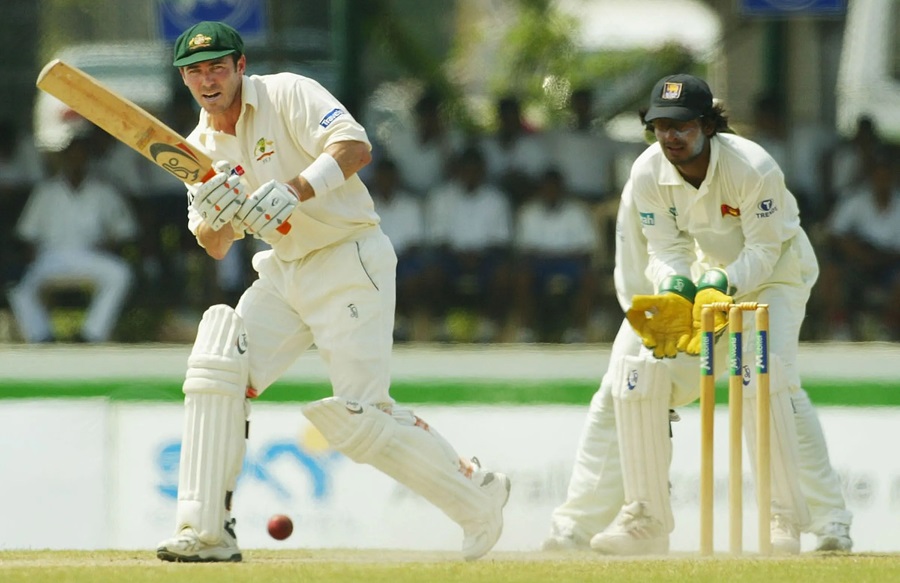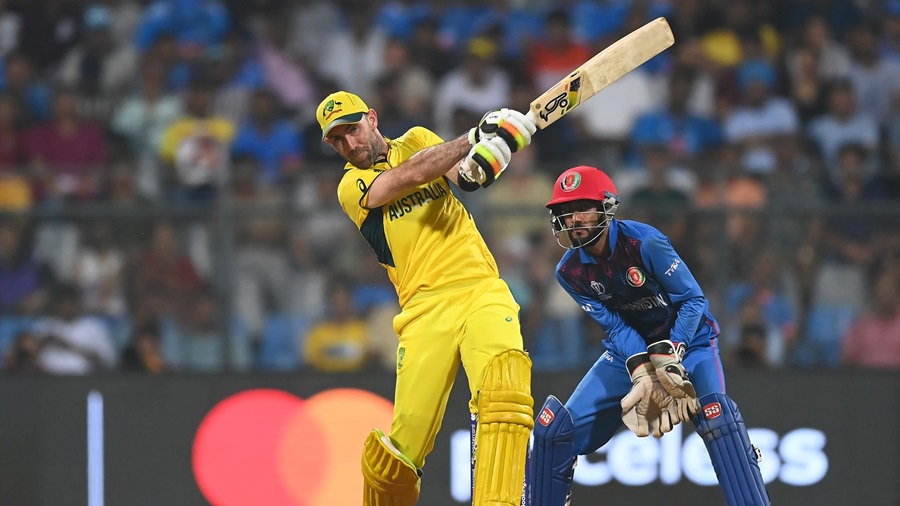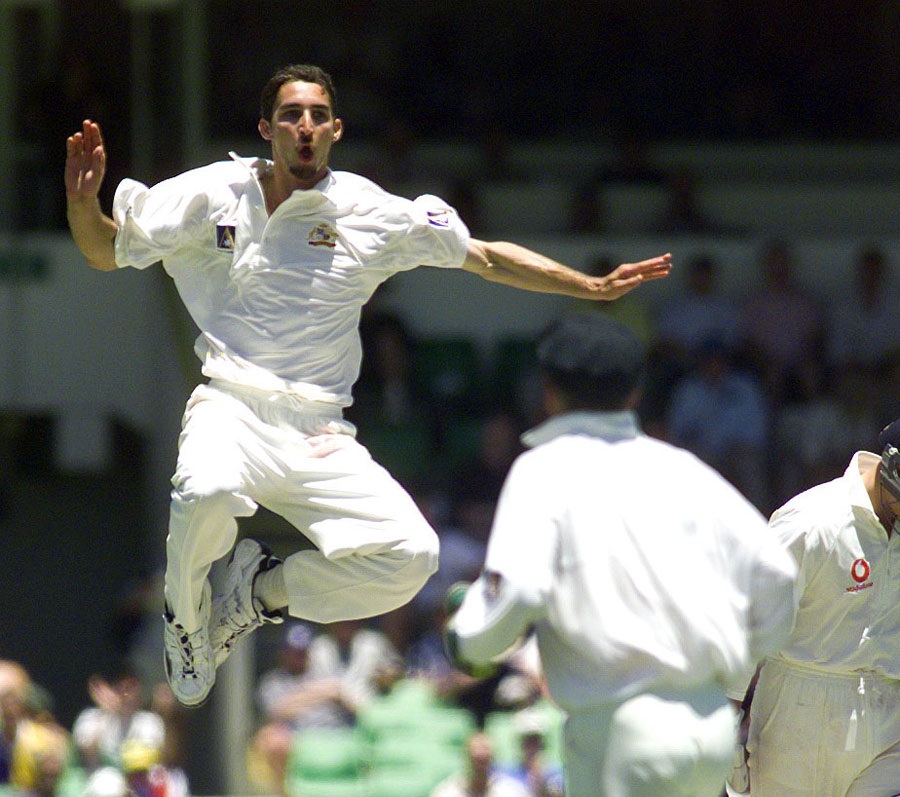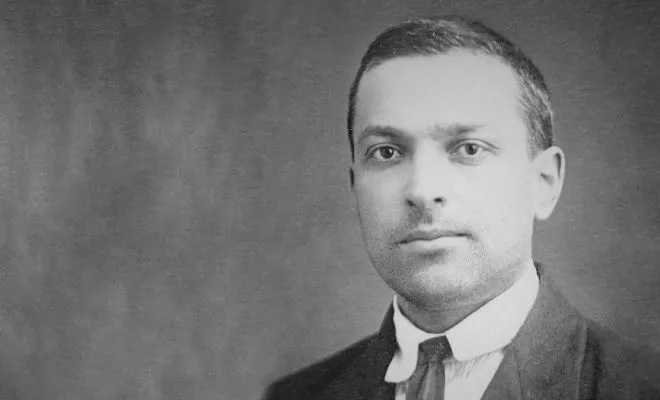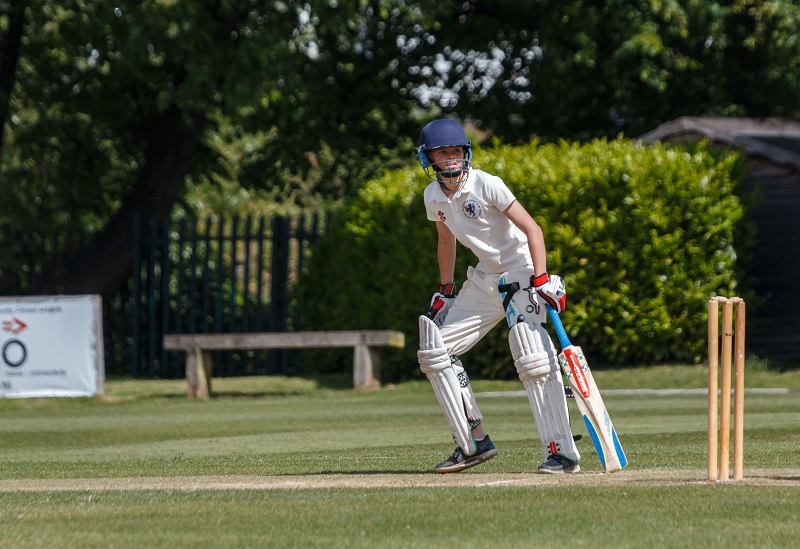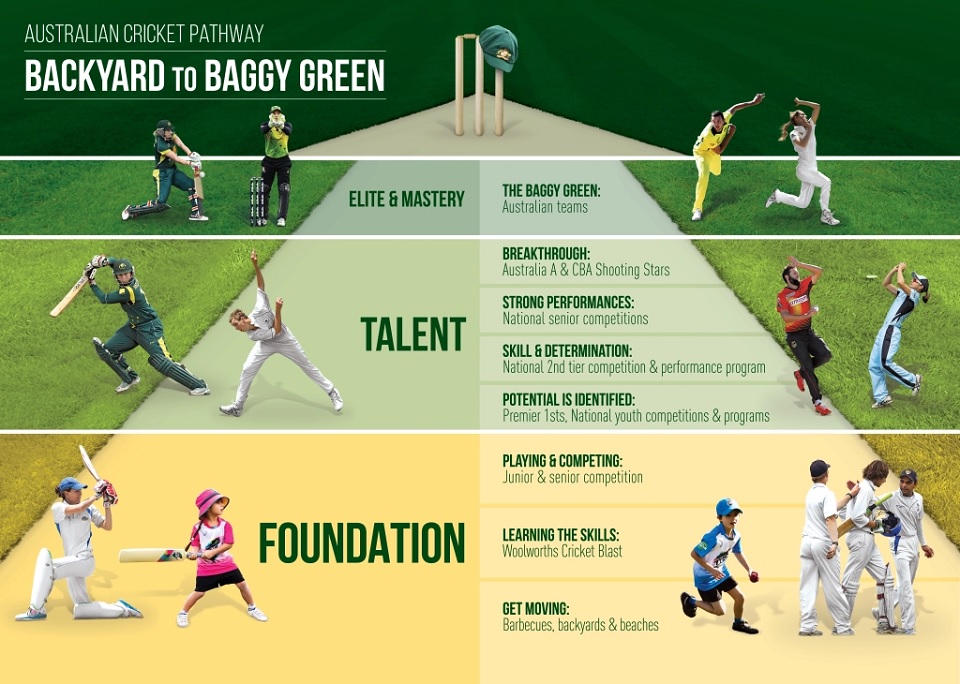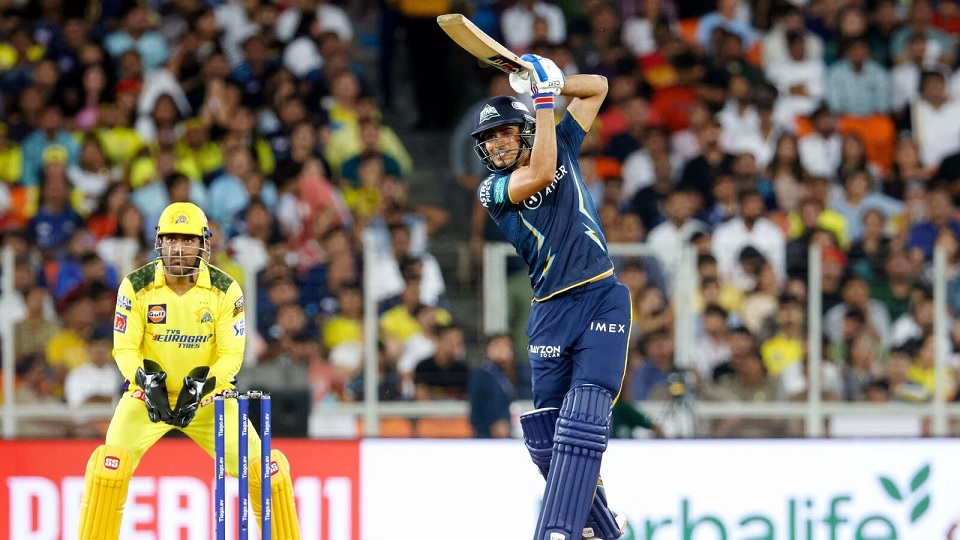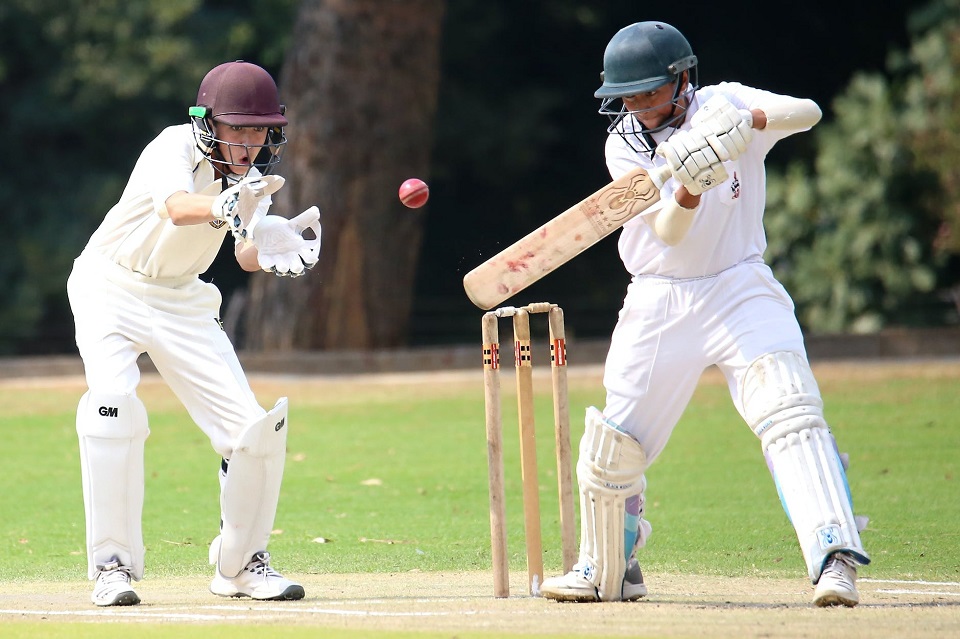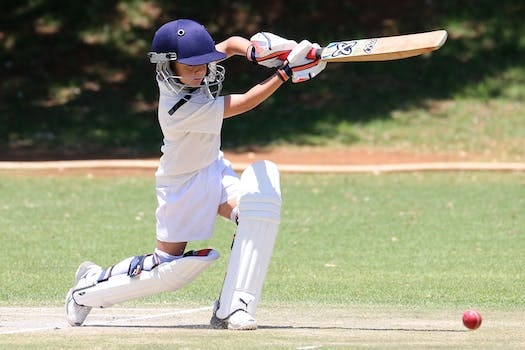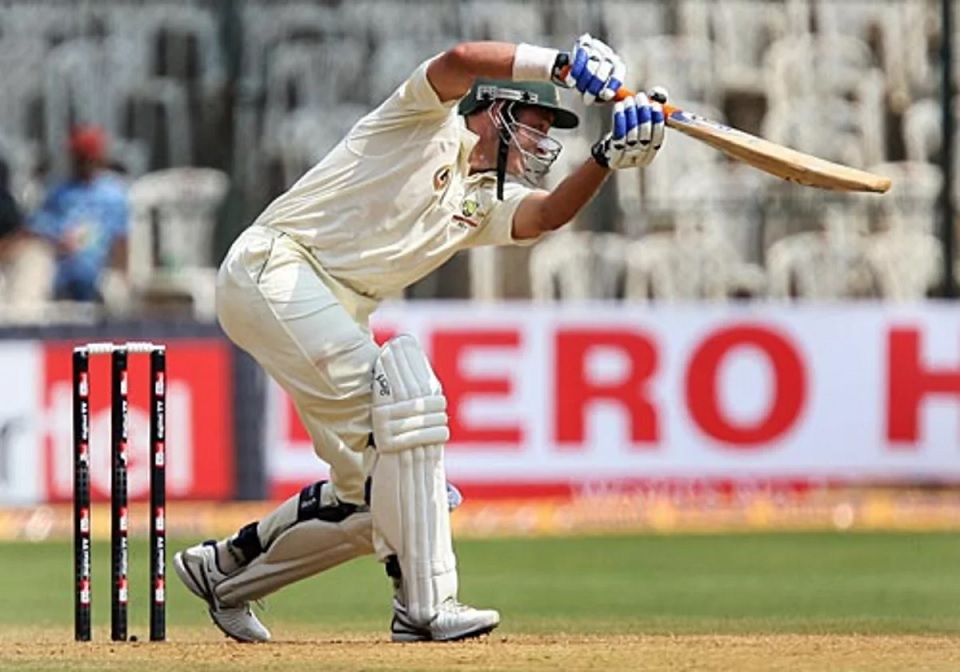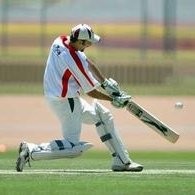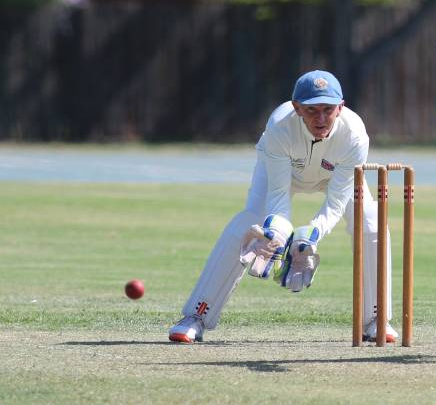About Me
Peter Procopis
Current Rating: 5 / 5
Sunshine Coast, Queensland, Australia
Played NSW Premier Cricket for Manly Warringah District Cricket Club and Mosman Cricket Club
Partner Sponsors
My Activity
question
Q: Just over a year ago, I published the piece below on the ongoing importance of dynamic movement for peak batting performance.
My purpose was to provide a counterpoint to a disturbing trend over recent years towards batting coaches focusing on stillness and stability at the expense of dynamic movement.
My concern, in particular, was for young batters between the ages of 8-16. It’s vitally important that youngsters learn full-body, fluid, dynamic movement when batting. There is plenty of time to stabilise and refine later. But if you miss the opportunity, for example, to become a dynamic ‘skip-stepper’ and ‘spring-backer’ against spin bowling during that period, it is very, very difficult to acquire the skill as an adult.
My purpose was to provide a counterpoint to a disturbing trend over recent years towards batting coaches focusing on stillness and stability at the expense of dynamic movement.
My concern, in particular, was for young batters between the ages of 8-16. It’s vitally important that youngsters learn full-body, fluid, dynamic movement when batting. There is plenty of time to stabilise and refine later. But if you miss the opportunity, for example, to become a dynamic ‘skip-stepper’ and ‘spring-backer’ against spin bowling during that period, it is very, very difficult to acquire the skill as an adult.
https://www.cricconnect.com/profile/946/peter-procopis/blog/2250/batters-bat-tap-spring-load-the-feet-look-to-score
blog post
Just over a year ago, I published the piece below on the ongoing importance of dynamic movement for peak batting performance. ...
question
Q: A few years ago, I was fortunate enough to have an exchange with Greg Chappell about cricket. Greg suggested that the next frontier in performance would be in mental skills. I've been reflecting on that exchange recently. Through the prism of my two favourite sports, golf and cricket, the article below discusses the value of accepting imperfection while pursuing mastery. As usual, I encourage you to share your thoughts.
Like Golf, Cricket is definitely not a game of Perfect.
Dr Bob Rotella’s book, Golf is not a game of Perfect, contains numerous gold nuggets of wisdom for anyone serious about improving their sporting performance.
Like Golf, Cricket is definitely not a game of Perfect.
Dr Bob Rotella’s book, Golf is not a game of Perfect, contains numerous gold nuggets of wisdom for anyone serious about improving their sporting performance.
https://www.cricconnect.com/profile/946/peter-procopis/blog/2194/like-golf-cricket-is-definitely-not-a-game-of-perfect
blog post
A few years ago, I was fortunate enough to have an exchange with Greg Chappell about cricket. Greg suggested that the next frontier in performance would be in mental skills. I've been reflecting on ...
answered
Q: Is it okay for a cricket coach who coaches players privately to be allowed to coach or be a selector in a state pathways system or a cricket club's underage representative team?
A: No. The most important reason is that it is bad for the players themselves. Youth cricketers should have a healthy disregard for the process of selecting teams. They should be encouraged to see such selections as ‘point-in-time’ judgements by adults, some of whom will have some clues about cricket, others of whom are less knowledgeable. Youngsters should be pleased if they make a side, but only ever disappointed to miss out for a very short period. Teams come, teams go…none of them are make or break.
They should be focussed on dreaming, training and playing, rather than wondering whether they made a team or didn’t make a team due to their relationship with a selector.
Of course, it’s also bad for the overall integrity of a program.
They should be focussed on dreaming, training and playing, rather than wondering whether they made a team or didn’t make a team due to their relationship with a selector.
Of course, it’s also bad for the overall integrity of a program.
question
Q: Some thoughts on leadership in cricket and how to get the best out of young players follow.
Recently, I've had the pleasure of some interesting discussions with players, Coaches and Captains of Grade Cricket teams about leadership, and in particular how to get the best out of young players.
Serendipitously, the exchange reproduced below between a journalist and former Australian fast bowler and current South Australian Redbacks Coach, Jason Gillespie, came through one of my feeds this week. In his response, Gillespie neatly captures the essence of one of my contentions during those recent discussions, namely that the most important question a young player, or indeed any cricketer, should be answering via their training, preparation and match play is "What does my team need me to do to help us win?"
Recently, I've had the pleasure of some interesting discussions with players, Coaches and Captains of Grade Cricket teams about leadership, and in particular how to get the best out of young players.
Serendipitously, the exchange reproduced below between a journalist and former Australian fast bowler and current South Australian Redbacks Coach, Jason Gillespie, came through one of my feeds this week. In his response, Gillespie neatly captures the essence of one of my contentions during those recent discussions, namely that the most important question a young player, or indeed any cricketer, should be answering via their training, preparation and match play is "What does my team need me to do to help us win?"
https://www.cricconnect.com/profile/946/peter-procopis/blog/1745/some-thoughts-on-leadership-in-cricket-and-how-to-get-the-best-out-of-young-players-follow
answered
Q: Who is the one player from Sydney Grade Cricket who played between 1980 and 2000 you’d want as the first player selected if you had the opportunity to start your own NSW Premier first grade cricket team?
A: Shawn Bradstreet would be my first player selected
question
Q: Peter Procopis - my best captain
Craig Glassock (Manly Warringah) was the best captain I played with during my Grade Cricket career.
Everything Craig did during the cricket season was directed towards his team winning matches. He drove a team-first culture both on and off the field.
Players were expected to play whatever role was needed on the day. Team-focussed performances were rewarded via public acknowledgement and in selections and more 'selfish', statistical-based play was frequently challenged and counted against players in selections.
Craig was well ahead of his time insofar as the focus he placed on our fielding was concerned.
He led from the front as the best Keeper-batsman in NSW for a few years there.
We regularly completed long, hard, match-specific fielding sessions. Each player was also expected to do their own specific fielding practise in positions they usually fielded in during matches.
Like many others, I felt empowered as a player by Craig's encouragement. He was particularly good at helping players believe in their ability and back themselves when playing in his first grade side.
His own batting and keeping was always confident. He always looked to progress the game and we never played for draws.
That leadership made things very clear and simple for his players.
Craig Glassock (Manly Warringah) was the best captain I played with during my Grade Cricket career.
Everything Craig did during the cricket season was directed towards his team winning matches. He drove a team-first culture both on and off the field.
Players were expected to play whatever role was needed on the day. Team-focussed performances were rewarded via public acknowledgement and in selections and more 'selfish', statistical-based play was frequently challenged and counted against players in selections.
Craig was well ahead of his time insofar as the focus he placed on our fielding was concerned.
He led from the front as the best Keeper-batsman in NSW for a few years there.
We regularly completed long, hard, match-specific fielding sessions. Each player was also expected to do their own specific fielding practise in positions they usually fielded in during matches.
Like many others, I felt empowered as a player by Craig's encouragement. He was particularly good at helping players believe in their ability and back themselves when playing in his first grade side.
His own batting and keeping was always confident. He always looked to progress the game and we never played for draws.
That leadership made things very clear and simple for his players.
question
Q: A hearty congratulations to Captain Pat and his World Champion One Day side! Of course, Captain Pat also leads the current World Test Champions too. Not bad...not bad at all for a new age bloke with a few political views and a penchant for Aristotle-style Coaches as opposed to Aussie Alphas.
Okay, so I'm being a bit cheeky on this post, provoking a few of my grizzled, old Grade Cricket toughie comrades. You know, the Steve Waugh crew; my mob who reckon Langer was hard done by and that modern players are a bit precious and sometimes even petulant.
The irony of course of me stirring the pot this way is that I was an avowed Stephen Rodger acolyte; an avid admirer of his hard, old-school ways. But you grow older don't you, and you reflect. So, my cricket brothers, here are some scoring opportunities. Who's keen to play a few shots? C'mon, we're not the leaving "No Runnn" types, are we?
Half volley 1- the Australian pathway system is imperfect but producing good results. We win World Championships.
Half volley 2- the load management, training phasing and overall coaching of our bowlers was superb. How else did they peak so perfectly? The loading and resting and MRI scanning is working.
Half volley 3- you don't have to be as Hayden refers to them 'an Australian Great' to be a successful Head Coach of an Australian side.
Half tracker 1- the “new age' overall workload management of players that aims at keeping them mentally healthy and connected to their loved ones and communities seems to be working.
Half tracker 2- the Australian selection panel is doing a very, very good job.
Half tracker 3- the large contingent of support staff seem to be minimising injuries, maximising playing time and providing excellent environments for the players to excel in.
Anyone that saw my 2-over first grade bowling career one Sunny afternoon at Old Kings against Paramatta circa 2000 will recognise the deliveries above. Let's see if I do better than 1-17 this time. Play a few shots, lads and lasses.
Okay, so I'm being a bit cheeky on this post, provoking a few of my grizzled, old Grade Cricket toughie comrades. You know, the Steve Waugh crew; my mob who reckon Langer was hard done by and that modern players are a bit precious and sometimes even petulant.
The irony of course of me stirring the pot this way is that I was an avowed Stephen Rodger acolyte; an avid admirer of his hard, old-school ways. But you grow older don't you, and you reflect. So, my cricket brothers, here are some scoring opportunities. Who's keen to play a few shots? C'mon, we're not the leaving "No Runnn" types, are we?
Half volley 1- the Australian pathway system is imperfect but producing good results. We win World Championships.
Half volley 2- the load management, training phasing and overall coaching of our bowlers was superb. How else did they peak so perfectly? The loading and resting and MRI scanning is working.
Half volley 3- you don't have to be as Hayden refers to them 'an Australian Great' to be a successful Head Coach of an Australian side.
Half tracker 1- the “new age' overall workload management of players that aims at keeping them mentally healthy and connected to their loved ones and communities seems to be working.
Half tracker 2- the Australian selection panel is doing a very, very good job.
Half tracker 3- the large contingent of support staff seem to be minimising injuries, maximising playing time and providing excellent environments for the players to excel in.
Anyone that saw my 2-over first grade bowling career one Sunny afternoon at Old Kings against Paramatta circa 2000 will recognise the deliveries above. Let's see if I do better than 1-17 this time. Play a few shots, lads and lasses.
blog post
Recently, I've had the pleasure of some interesting discussions with players, Coaches and Captains of Grade Cricket teams about leadership, and in particular how to get the best out of young player ...
question
Q: During my Education studies, I was introduced to the seminal theory of learning and development of Belarussian Psychologist, Lev Vygotsky. Vygotsky’s Zone of Proximal Development is typically defined as the space between what a learner can do without assistance and what a learner can do with expert guidance or in collaboration with more capable peers.
As Aussie Cricket Season 2023/24 approaches, I thought Vygotsky’s ideas might be helpful to players, parents, and coaches as they grapple with a common, perennial cricket development issue: which age group should a youngster play in?
Before jumping into our issue, for our purposes we can interpret Vygotsky’s Zone of Proximal Development as having two main recognisable elements: masterful coaching and stretching players by training at the edge of their capabilities.
As Aussie Cricket Season 2023/24 approaches, I thought Vygotsky’s ideas might be helpful to players, parents, and coaches as they grapple with a common, perennial cricket development issue: which age group should a youngster play in?
Before jumping into our issue, for our purposes we can interpret Vygotsky’s Zone of Proximal Development as having two main recognisable elements: masterful coaching and stretching players by training at the edge of their capabilities.
https://www.cricconnect.com/profile/946/peter-procopis/blog/1420/the-zone-of-discomfort-where-deeper-confidence-is-built
blog post
During my Education studies, I was introduced to the seminal theory of learning and development of Belarussian Psychologist, Lev Vygotsky. Vygotsky’s Zone of ...
question
Q: A pre-season letter to a young batter
Season’s greetings young willow wielder,
I imagine you’ve begun some early preparations for Season 2023/24. You may have had a couple of hits with your mates; Club training is now morphing from fitness to nets; and you may even have had your first fielding session- usually quite a shock for those phalanges and their soft tissue surrounds.
No doubt there are a few things that will occur over the next month as the countdown continues. In no particular order you can expect to experience the following:
1. There’ll be a bunch of new players at the Club’s pre-season sessions. This will typically excite coaching staff and selectors who are, of course, vulnerable to the all-too-human bias towards the new and novel over the old and familiar. This will be compounded if the newcomers demonstrate ball machine prowess and net mastery. Of course, as sure as night follows day, some will turn out to be performers in the middle; others will not.
Season’s greetings young willow wielder,
I imagine you’ve begun some early preparations for Season 2023/24. You may have had a couple of hits with your mates; Club training is now morphing from fitness to nets; and you may even have had your first fielding session- usually quite a shock for those phalanges and their soft tissue surrounds.
No doubt there are a few things that will occur over the next month as the countdown continues. In no particular order you can expect to experience the following:
1. There’ll be a bunch of new players at the Club’s pre-season sessions. This will typically excite coaching staff and selectors who are, of course, vulnerable to the all-too-human bias towards the new and novel over the old and familiar. This will be compounded if the newcomers demonstrate ball machine prowess and net mastery. Of course, as sure as night follows day, some will turn out to be performers in the middle; others will not.
https://www.cricconnect.com/profile/946/peter-procopis/blog/1401/a-pre-season-letter-to-a-young-batter
blog post
Season’s greetings young willow wielder,I imagine you’ve begun some ea ...
question
Q: Recently, I caught up with a friend whose fourteen-year-old son has fallen in love with cricket. The youngster lives and breathes the game, playing in multiple competitions, including State underage representative carnivals and challenges.
My friend is grateful to be able to share his love for the game with his son, even if it means carting him around to cricket during the Winter as well as the Summer. But he also explained how confused he was about how to help his lad take the next steps the game. The term that kept coming up in his utterings was ‘The Pathway’ or slight variations thereof. I immediately confessed that my understanding of ‘Pathways’ broad but rather shallow. I pointed him to the numerous explanatory public documents published by Cricket Australia and the various State Cricket authorities. I also flagged with him that each has their own pathway that reflects their particular requirements, but that they all feed into the national plan for talent identification and development overseen by Cricket Australia.
My friend is grateful to be able to share his love for the game with his son, even if it means carting him around to cricket during the Winter as well as the Summer. But he also explained how confused he was about how to help his lad take the next steps the game. The term that kept coming up in his utterings was ‘The Pathway’ or slight variations thereof. I immediately confessed that my understanding of ‘Pathways’ broad but rather shallow. I pointed him to the numerous explanatory public documents published by Cricket Australia and the various State Cricket authorities. I also flagged with him that each has their own pathway that reflects their particular requirements, but that they all feed into the national plan for talent identification and development overseen by Cricket Australia.
https://www.cricconnect.com/profile/946/peter-procopis/blog/1382/cricket-pathways-to-success
blog post
Recently, I caught up with a friend whose fourteen-year-old son has fallen in love with cricket. The youngster lives and breathes the game, playing in multiple competitions, including State underag ...
answered
Q: ‘Bazball’ is a performance approach devised by England coach Brendan McCullum that centres on England playing with assertive behaviours and with an emphasis on enjoyment.
Historically, I’ve written glowingly about ‘Bazball’…not because of the improvement it’s had on the England team, but because at its heart lies an accumulation of performance philosophies that sport psychologists have written about for years (a bit of professional nepotism for you there!)
So here’s my (respectful) grenade…
Historically, I’ve written glowingly about ‘Bazball’…not because of the improvement it’s had on the England team, but because at its heart lies an accumulation of performance philosophies that sport psychologists have written about for years (a bit of professional nepotism for you there!)
So here’s my (respectful) grenade…
https://www.cricconnect.com/profile/1104/dan-abrahams/blog/1236/are-england-being-strategically-reckless-with-bazball
A: Hey Dan, shhhh, we Aussies don't need Ben and Baz' lads reading this sort of clear, insightful analysis at this point.
I was only making a similar point to my son yesterday as...nowhere near as well articulated, but a similar point nonetheless.
The game in front of players at any one time requires a bespoke set of strategic and tactical actions. The ultimate goal is, after all, to win the match. That is most likely achieved by winning more of the battles each day within the five day war. Sometimes, depending upon the big Mo (momentum) and temporary conditions, ducking and weaving short-pitched bowling is required to scupper the opposition; other times pulling and hooking is the better option. The trick is being able to quickly analyse the scenario, settle on a plan, and get stuck into your work.
Terms like Bazball and the 'Australian Way' are, most usefully associated with an assertive, curious, playful overall approach to the game. But regardless of whatever philosophy your team adopts, you cannot ignore the specific game in front of you at any one time. And that is why the best players and best teams will continue to be those that adapt their game on the go to meet the specific challenges posed. Sticking dogmatically to any one particular set of tactics or strategies might work quite well at lower levels of cricket, but it won't be enough to consistently win Test matches.
I was only making a similar point to my son yesterday as...nowhere near as well articulated, but a similar point nonetheless.
The game in front of players at any one time requires a bespoke set of strategic and tactical actions. The ultimate goal is, after all, to win the match. That is most likely achieved by winning more of the battles each day within the five day war. Sometimes, depending upon the big Mo (momentum) and temporary conditions, ducking and weaving short-pitched bowling is required to scupper the opposition; other times pulling and hooking is the better option. The trick is being able to quickly analyse the scenario, settle on a plan, and get stuck into your work.
Terms like Bazball and the 'Australian Way' are, most usefully associated with an assertive, curious, playful overall approach to the game. But regardless of whatever philosophy your team adopts, you cannot ignore the specific game in front of you at any one time. And that is why the best players and best teams will continue to be those that adapt their game on the go to meet the specific challenges posed. Sticking dogmatically to any one particular set of tactics or strategies might work quite well at lower levels of cricket, but it won't be enough to consistently win Test matches.
question
Q: Shubman the Magnificent- an emerging master craftsman
It was an innings for the ages. Shubman Gill’s match-winning century for the Gujarat Titans in the recent IPL Qualifying Final was electrifying. The young superstar was unstoppable as he set up his side’s victory and consequent place in the Final. His imperious 129 off a mere 60 balls was the highlight of a magnificent IPL campaign for India’s latest master batsman.
Gill’s footwork was nimble and his placement precise. But it was his timing that mesmerised those of us fortunate enough to watch his masterclass. It was sublime. Time and time again he struck the ball at the sweetest of spots in that superb bat swing of his. The cricket ball pinged off his bat as if it was a golf ball being launched from the tee by Rory McIlroy.
It was an innings for the ages. Shubman Gill’s match-winning century for the Gujarat Titans in the recent IPL Qualifying Final was electrifying. The young superstar was unstoppable as he set up his side’s victory and consequent place in the Final. His imperious 129 off a mere 60 balls was the highlight of a magnificent IPL campaign for India’s latest master batsman.
Gill’s footwork was nimble and his placement precise. But it was his timing that mesmerised those of us fortunate enough to watch his masterclass. It was sublime. Time and time again he struck the ball at the sweetest of spots in that superb bat swing of his. The cricket ball pinged off his bat as if it was a golf ball being launched from the tee by Rory McIlroy.
https://www.cricconnect.com/profile/946/peter-procopis/blog/1087/shubman-the-magnificent-an-emerging-master-craftsman
blog post
It was an innings for the ages. Shubman Gill’s match-winning century for the Gujarat Titans in the recent IPL Qualifying Final was electrifying. The young superstar wa ...
question
Q: A fundamental skill for any batter is the art of concentration
Faster improvement- why wait?
“Oh, mate, talk about frustrating… he threw it away again. Looked great for 80 minutes…then, all of a sudden, he ran at the leggie like a madman and tried to hit him into the next suburb. Missed it by a foot. Another big score gone begging. Bloody young guys…just don’t want it enough.”
I bet many of you have heard something like this from a Coach, official or senior player over the years- probably on multiple occasions. It’s the classic lament about the inability of promising youngsters to convert 20s and 30s into 70s and 100s. This age-old phenomenon is very frustrating not only for those watching young batsmen’s often chaotic downfalls, but also the youngsters themselves. They’re usually at a loss when asked what, if anything, triggered the brain explosion.
Faster improvement- why wait?
“Oh, mate, talk about frustrating… he threw it away again. Looked great for 80 minutes…then, all of a sudden, he ran at the leggie like a madman and tried to hit him into the next suburb. Missed it by a foot. Another big score gone begging. Bloody young guys…just don’t want it enough.”
I bet many of you have heard something like this from a Coach, official or senior player over the years- probably on multiple occasions. It’s the classic lament about the inability of promising youngsters to convert 20s and 30s into 70s and 100s. This age-old phenomenon is very frustrating not only for those watching young batsmen’s often chaotic downfalls, but also the youngsters themselves. They’re usually at a loss when asked what, if anything, triggered the brain explosion.
https://www.cricconnect.com/profile/946/peter-procopis/blog/1047/a-fundamental-skill-for-any-batter-is-the-art-of-concentration
blog post
Faster improvement- why wait?“Oh, mate, talk about frustrating… he threw it away again. Looked great for 80 minutes…then, all of a sudden, he ran at the leggie like a madman and tried ...
blog post
False Prophet: “Big fellaaa… how ya goin’ champ? Saw your young bloke the other day… looked alright… still just losing his shape a bit through here (gesticulates with the top hand of a c ...
blog post
Stand still. Don’t overstride. Stable base. Widen your stance.There is something valuable in each of these phrases for batsmen. Stillness and stability are certainly elements of a sound ba ...









